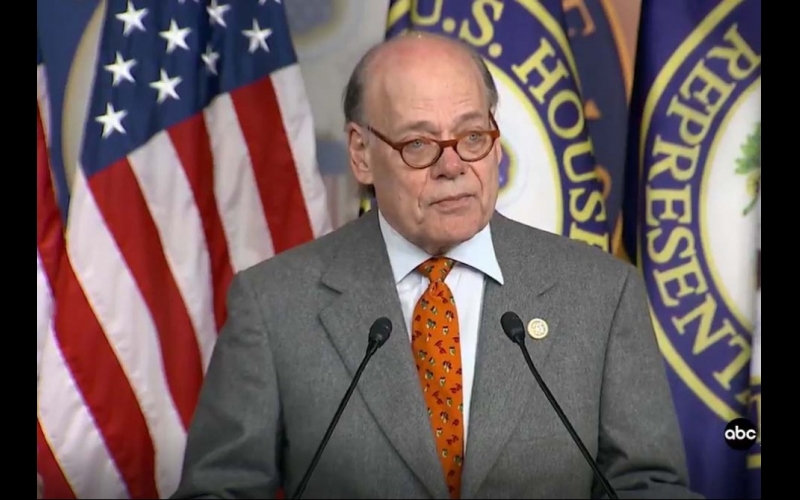
In his statement, commemorating the 29th anniversary of 20 January tragedy, congressman Steve Cohen described the ‘‘Black January’’ killings as one of the most tragic events in Azerbaijan’s history. He said: “On the night of January 20, 1990, approximately 26,000 Soviet troops stormed Azerbaijan’s capital city of Baku in tanks and armored vehicles. That night, the Soviet military bulldozed innocent Azerbaijanis and opened indiscriminate fire on peaceful demonstrators, including women and children. As a result of these merciless acts 147 people were killed, around 800 were injured, 841 were arrested, and 5 went missing.
The Human Rights Watch report ‘‘Black January in Azerbaijan’’ states that ‘‘among the most heinous violations of human rights during the Baku incursion were the numerous attacks on medical personnel, ambulances, and even hospitals.’’ The report concludes that the violence used by the Soviet Army constituted an exercise in collective punishment and that the punishment inflicted on Baku by Soviet soldiers may have been intended as a warning to nationalists, not only in Azerbaijan, but in other Republics of the Soviet Union. I offer my thoughts and prayers to the families of those who gave their lives for the independence of Azerbaijan.
The United States and Azerbaijan are strategic allies and share common interests in the region and globally. I commend Azerbaijan’s contributions to the security of the United States. As the co-chairman of the Congressional Azerbaijan Caucus, I urge my colleagues to recognize the sacrifices of the Azerbaijani people in their steps toward a free market economy and encourage a recommitment to the democratic values for which many Azerbaijanis sacrificed their lives.” Another congressman Steve Chabot said: “I rise today in observance of the 29th anniversary of Black January, January 20, a historic and tragic day in the history of the country of Azerbaijan and to remember the lives lost at the hands of Soviet brutality 29 years ago.
On the night of January 20, 1990, 26,000 Soviet troops invaded the capital city of Baku and surrounding areas. As a result of this violent crackdown on the Azerbaijani people, more than 147 innocent civilians died, around 800 people were injured, and hundreds were arrested. This event has remained embedded in Azerbaijan’s national history and in the minds of its citizens as ‘‘Black January.’’ This tragic event is seen as the rebirth of the Azerbaijan Republic.
This attack was a desperate attempt to squelch the independence movement that was gaining momentum in Azerbaijan and to rescue the totalitarian regime, the rule of Communist Party, and the whole Soviet Union. This attack, however, produced opposite results, further inflaming the independence movement in Azerbaijan as well as those in other Republics of the former Soviet Union. Popular pressure led the country to break away from Soviet rule and declare its independence. On August 30, 1991, Azerbaijan’s Parliament adopted the Declaration on the Restoration of the State Independence of the Republic of Azerbaijan, and on October 18, 1991, the Constitutional Act on the State Independence of the Republic of Azerbaijan was approved. November 1991 marked the beginning of international recognition of Azerbaijan’s independence. The United States was among the first nations to recognize the young country’s independence when we established diplomatic relations on February 28, 1992 and opened an embassy in Baku in March. Today, the U.S. and Azerbaijan share many interests and objectives for the region as we cooperate on a broad range of issues, especially energy development and security concerns. I encourage my colleagues to join with me and the Azerbaijani people as they remember this tragedy.”
Views: 275
